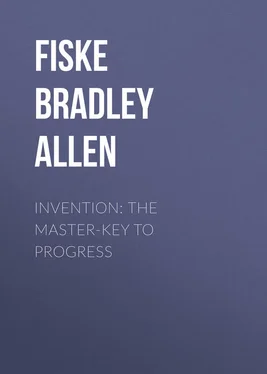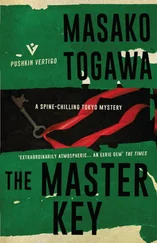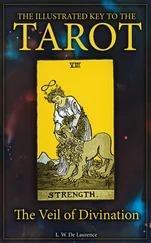Bradley Fiske - Invention - The Master-key to Progress
Здесь есть возможность читать онлайн «Bradley Fiske - Invention - The Master-key to Progress» — ознакомительный отрывок электронной книги совершенно бесплатно, а после прочтения отрывка купить полную версию. В некоторых случаях можно слушать аудио, скачать через торрент в формате fb2 и присутствует краткое содержание. Жанр: foreign_antique, foreign_prose, на английском языке. Описание произведения, (предисловие) а так же отзывы посетителей доступны на портале библиотеки ЛибКат.
- Название:Invention: The Master-key to Progress
- Автор:
- Жанр:
- Год:неизвестен
- ISBN:нет данных
- Рейтинг книги:4 / 5. Голосов: 1
-
Избранное:Добавить в избранное
- Отзывы:
-
Ваша оценка:
- 80
- 1
- 2
- 3
- 4
- 5
Invention: The Master-key to Progress: краткое содержание, описание и аннотация
Предлагаем к чтению аннотацию, описание, краткое содержание или предисловие (зависит от того, что написал сам автор книги «Invention: The Master-key to Progress»). Если вы не нашли необходимую информацию о книге — напишите в комментариях, мы постараемся отыскать её.
Invention: The Master-key to Progress — читать онлайн ознакомительный отрывок
Ниже представлен текст книги, разбитый по страницам. Система сохранения места последней прочитанной страницы, позволяет с удобством читать онлайн бесплатно книгу «Invention: The Master-key to Progress», без необходимости каждый раз заново искать на чём Вы остановились. Поставьте закладку, и сможете в любой момент перейти на страницу, на которой закончили чтение.
Интервал:
Закладка:
The New Stone Age seems to have passed gradually into the Age of Copper, because doubtless of a more or less accidental discovery when native copper was seen upon the ground, or when some copper ore was subjected to fire. The metal, by reason of its great durability, ductility, elasticity and strength, came to be used for many purposes – the first use being probably in weapons; for weapons were the main dependence of the people in their struggle against beasts.
A great advance was made when bronze was discovered, with which weapons and tools of many kinds could be made that were harder than those of copper. Then the Age of Bronze succeeded the Age of Copper. One can hardly imagine that bronze was really invented; for it is difficult to see how, knowing the softness of copper and tin, any primeval man could have imagined a metal made from them much harder than either, and then proceeded to make it by mixing about seven parts of copper with one part of tin. The gradual improvement made in bronze implements, and the different kinds of bronze that later appeared (made by altering the proportions of tin and copper) were doubtless due more to constructive and engineering methods than to pure invention; but nevertheless a considerable amount of inventing must have been required; for one can rarely effect any important improvement in any weapon, instrument or tool, without first imagining the improvement, and then endeavoring to effect it.
In fact, an overwhelming majority of the "inventions" for which patents are issued by our Patent Office, are for mere improvements over existing apparatus; and the bald fact that the thing accomplished is only such an improvement, instead of the creation of something different from everything else whatever, like the telephone or phonograph, does not debar the achievement from being classed as an invention. The pointed screw was merely an improvement over previous forms of screw, and yet it was an invention of high originality, novelty and importance. Obviously, improvements occupy various positions not only in importance and scope, but also in the relative degrees in which invention and construction were employed to bring them into being.
It is held by some that no purely human act can possibly create anything really new, that "there is nothing new under the sun," and that therefore every so-called invention made by a man must be merely a novel arrangement of already existing objects.
Of course, no man "creates" anything, in the sense that he makes anything whatever out of nothing; but it is a well-known fact that he has created many things in the sense that he has made many entities to exist that had not existed before as such entities; for instance, man made the speaking telephone to exist. The speaking telephone did not exist before Bell invented it, and it did exist after he invented it. To say that Bell did or did not create the telephone conveys a meaning dependent wholly on the meaning in which the word "create" is used. Men ordinarily use the word with such a meaning that it is correct to say that Bell created the speaking telephone; it being understood as a matter of common sense that Bell did not create the metals and other material parts which he put together to make the telephone.
Used in this sense, primeval man (or more correctly some primeval men, and probably a very few) created certain weapons, implements and utensils, that gave the men who used them such mastery over wild beasts and over men who did not use them, that the steps since taken toward civilization were made possible.
Our whole civilization can be traced back to those inventions, and can be shown to proceed from them and be based upon them. No other basis that civilization could have proceeded from can even be imagined; for the actual progress of events was the outcome of the actual nature of man, and the actual nature of his environment.
We seem forced to conclude, therefore, that we owe our civilization primarily to the invention of certain primeval implements and weapons, the art of making fire, etc., and therefore to the inventors who made the inventions. This does not mean that we do not owe it to other things besides inventions, and to other men besides inventors; for it is obvious that we owe it to all the facts of our history, and to such of our ancestors as did anything to advance it. We owe it in part, for instance, to the men who framed the laws that made living in villages and cities possible, to the men who executed the laws, and to all the men and women who observed the laws and gave examples of righteous living. For it is obvious that, no matter what inventions were made, the march of civilization could not have even started, unless there had been a sufficient number of good and intelligent men and women to keep the human procession in good order from the first.
It may be pointed out here that, although every human being has much of evil in his nature, yet even the most depraved person desires other people to be good. Even thieves see the advantage to themselves resulting from the fact that most men do not steal; murderers have no inclination toward being themselves murdered, and human beings as a class see the benefits of morality and good living throughout society as a whole. For this reason, and for the still more important reason that most individuals are not very different in their characteristics and abilities from the average of all individuals, the tendency of society is to reduce men to a common level; so that we see only a small fraction who are extremely good or extremely bad, extremely brilliant or extremely stupid, extremely large or extremely small, etc. Similarly, there is only a small fraction of the people who have done much good individually or much harm, or who have exercised individually any noticeable influence of any kind.
We may reasonably conclude, therefore, that there were only a few men in primeval days who performed any acts that entitle them to individual recognition; and as the only records that have come down to us indicate that the most important acts were the inventing of certain implements, we seem forced to conclude that most of the recognition accorded to individuals of primeval days may be limited to a very small number, and they inventors.
Who they were, and where and when they lived, is not known and probably never will be. For countless centuries their names and personalities have been forgotten as wholly as those of many beasts. But maybe other achievements like those that have exposed the history of certain Oriental kings and wise men to our knowledge, will some day tell us who were the inventors who started the march of human progress, and pointed out the road that it should follow.
Yet, if we infer the probable conditions of the remote past from the conditions of the present and recent past, we shall have to conclude that, while the names and deeds of prehistoric rulers may some day become known to us, and even the names of authors, poets and song singers, the names of the original inventors will be forever hid. For inventors have ever been depreciated in their day; even at the present time, despite the known facts as to what inventions and inventors have done for every one of us, the inventor as an inventor is lightly regarded, and so are his inventions. So are his inventions until they have ceased to be regarded as inventions, and have been accepted as constituent parts of the machine of civilization. By that time the inventor has often been forgotten.
The Age of Iron succeeded the Age of Bronze in the countries from which we have inherited our civilization; but in Africa bronze does not seem to have been discovered until after iron was. Iron being an element like copper, and not an alloy of two metals like bronze, it seems probable that its discovery, like that of copper, followed the act of heating stones with fire. The coming of iron seems due therefore to discovery rather than to invention; but yet the mere discovery that a very hard substance had been accidentally produced would of itself have brought forth no fruit. One is almost forced to infer from probability that the fact must have become known to many men, but only as a plain and uninteresting fact. Finally, some man realized that that hard substance was superior to bronze for making weapons, and then set to work to ascertain exactly what kinds of stone it could be gotten from, and exactly what process gave the best results.
Читать дальшеИнтервал:
Закладка:
Похожие книги на «Invention: The Master-key to Progress»
Представляем Вашему вниманию похожие книги на «Invention: The Master-key to Progress» списком для выбора. Мы отобрали схожую по названию и смыслу литературу в надежде предоставить читателям больше вариантов отыскать новые, интересные, ещё непрочитанные произведения.
Обсуждение, отзывы о книге «Invention: The Master-key to Progress» и просто собственные мнения читателей. Оставьте ваши комментарии, напишите, что Вы думаете о произведении, его смысле или главных героях. Укажите что конкретно понравилось, а что нет, и почему Вы так считаете.












